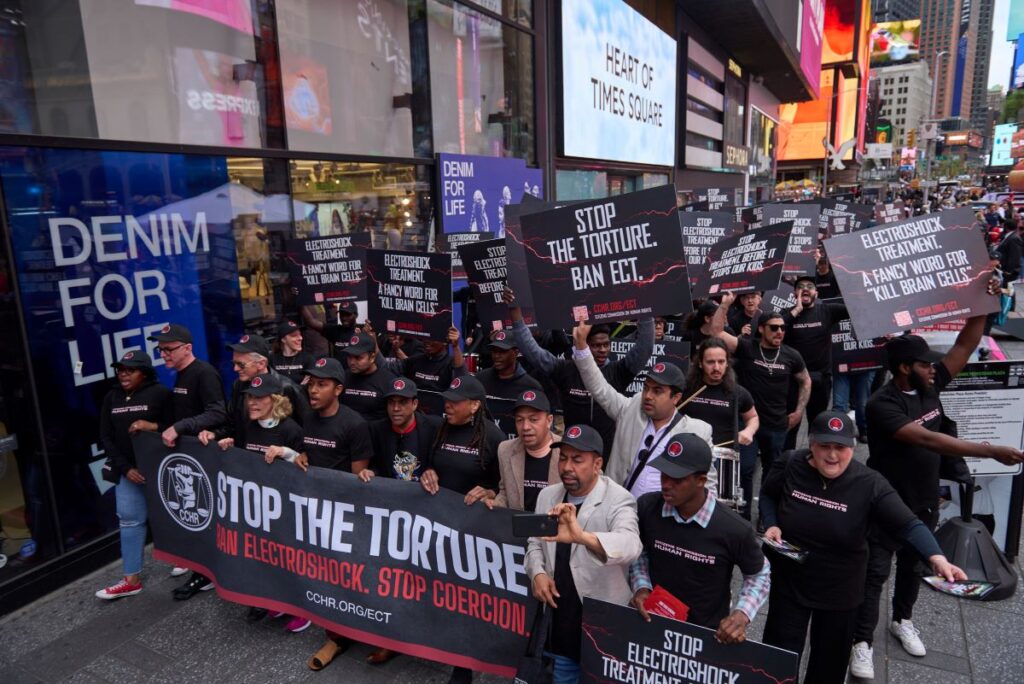Citizens Commission on Human Rights calls on APA to end the use of lucrative but dangerous coercive treatment and electroshock. CCHR’s exhibit in New York City through May 9 exposes grievous harm that psychiatric practices have caused patients.
Scores of protesters marched on the American Psychiatric Association’s (APA) annual conference Saturday in New York City, demanding the APA drop its support of coercive psychiatric treatments and electroshock and align itself to international human rights standards that argue against forced treatment. The protest was organized by the Citizens Commission on Human Rights (CCHR), an international mental health industry watchdog, which advocates for state and federal laws eliminating coercive practices and banning electroconvulsive therapy (ECT).

The demonstration included an airplane banner calling for the banning of ECT and Jumbotron truck which broadcast CCHR’s documentary, Therapy or Torture: The Truth About Electroshock. The group invited New Yorkers to CCHR’s “Psychiatry: An Industry of Death” exhibit, which will have its grand opening on Sunday, May 5, at 3 p.m. at 37 Union Square and run daily through May 9 from 11:00 a.m. to 9:00 p.m. The exhibit, which has toured the world, exposes the history of psychiatry and the grievous harm it has caused patients.
In 2023, the World Health Organization (WHO) and the Office of the United Nations High Commissioner for Human Rights (OHCHR) called for an end to all forced mental health treatment, saying coercive practices “violate the right to be protected from torture or cruel, inhumane and degrading treatment.” WHO/OHCHR also advised that, “International human rights standards clarify that ECT without consent violates the right to physical and mental integrity and may constitute torture and ill-treatment.”
Among psychiatric organizations, the World Psychiatric Association has stated its concern about “the extent to which coercive interventions violate” human rights, and the European Congress of Psychiatry has also held special sessions aimed at reducing the use of coercive measures. In contrast, the APA has continued its support of the profitable practices, which have left maimed and traumatized patients in their wake.
Since 2020, CCHR has put the APA on notice of the growing global concern about forced psychiatric institutionalization and treatment, which is rampant in the U.S. New York City has been criticized for its aggressive approaches to mental health treatment, including involuntary commitment, compulsory outpatient treatment, high restraint use and forced electroshock treatment.
The WHO/OHCHR guideline acknowledges ECT as a brain-damaging procedure, to which 100,000 Americans, including children, are subjected each year, but a sample of the websites of 12 New York hospitals delivering ECT revealed no mention of brain damage as an adverse effect.
“It is long past time for the APA to denounce coercive practices that traumatize patients and, in the case of ECT, cause brain damage, memory loss and even death in the name of mental health treatment,” said Anne Goedeke, president of the CCHR National Affairs Office in Washington. “Psychiatrists should not be exposing their patients to these unconscionable risks.”
